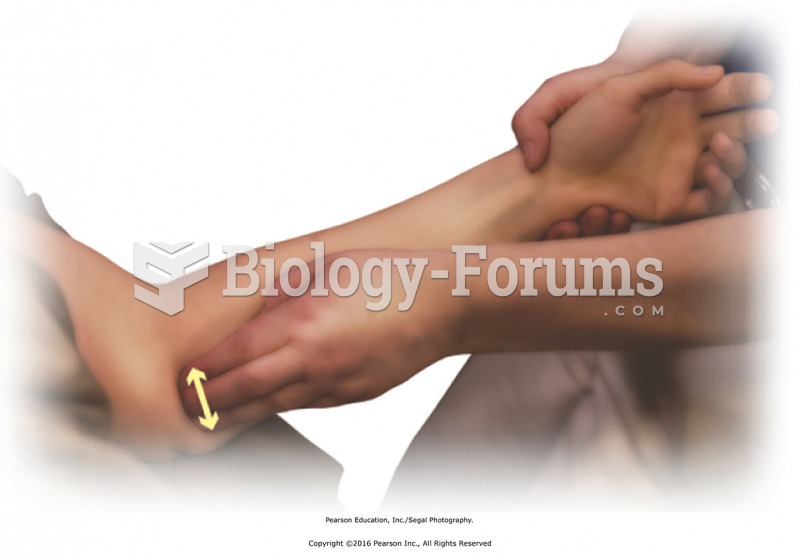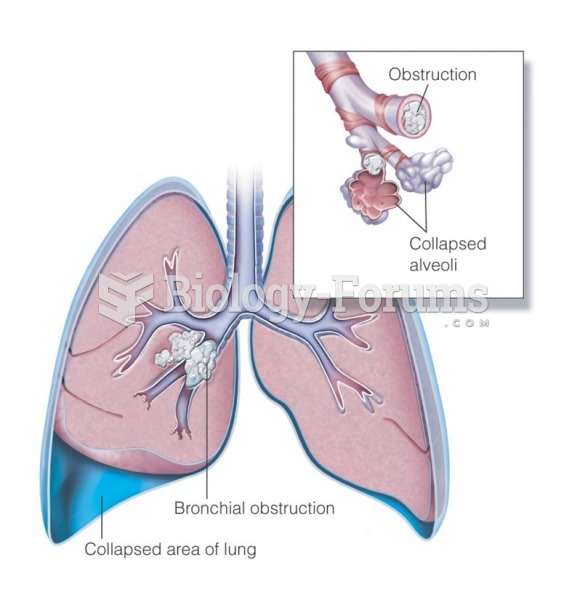|
|
|
As of mid-2016, 18.2 million people were receiving advanced retroviral therapy (ART) worldwide. This represents between 43–50% of the 34–39.8 million people living with HIV.
Pregnant women usually experience a heightened sense of smell beginning late in the first trimester. Some experts call this the body's way of protecting a pregnant woman from foods that are unsafe for the fetus.
Adolescents often feel clumsy during puberty because during this time of development, their hands and feet grow faster than their arms and legs do. The body is therefore out of proportion. One out of five adolescents actually experiences growing pains during this period.
Drying your hands with a paper towel will reduce the bacterial count on your hands by 45–60%.
Walt Disney helped combat malaria by making an animated film in 1943 called The Winged Scourge. This short film starred the seven dwarfs and taught children that mosquitos transmit malaria, which is a very bad disease. It advocated the killing of mosquitos to stop the disease.
 The tools necessary to adjust the valves on an engine with adjustable rocker arms include basic hand ...
The tools necessary to adjust the valves on an engine with adjustable rocker arms include basic hand ...
 Apply friction to tendons at the elbow with thumb or fingers. Add stripping effleurage along length ...
Apply friction to tendons at the elbow with thumb or fingers. Add stripping effleurage along length ...





